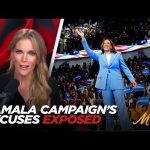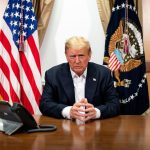In the world of political strategy, one glaring misstep has been the relentless reliance on Hollywood celebrities to influence public opinion. This tendency to elevate actors and entertainers as political advocates is a critical error that has left the Democratic Party struggling to connect with average Americans, especially those with conservative beliefs. The fact is, the average voter does not resonate with the lives of these celebrities, making the pairing of politics and stardom a questionable tactic at best.
Consider the recent emphasis on star power to weigh in on political issues. When celebrities like Taylor Swift or Julia Roberts take to the stage, there is often a collective eye roll from the audience, particularly among moderate Republican voters who feel alienated by them. These individuals see celebrities not as relatable figures but as out-of-touch elites who enjoy lavish lifestyles and dwell in gated communities while preaching political messages that often run counter to their values. This divide between celebrity and citizen only grows wider when Hollywood figures openly express disdain for conservative viewpoints. The hypocrisy is palpable, and voters are keenly aware of it.
The Democratic leadership’s apparent disregard for this disconnect signals a significant strategic failure. In the pursuit of appealing to so-called progressive ideals, party strategists have ignored a crucial market: the moderate and independent voters essential for electoral success. Over-reliance on celebrity endorsements presents a barrier rather than a bridge. Many voters respond not just with indifference but outright rejection when faced with public personas whom they know disdain their beliefs and values. This miscalculation highlights a lack of understanding of the American populace, which craves authenticity and relatability, not the glittery facade of celebrity.
Moreover, the idea that pop culture icons can sway the hearts and minds of those who lean conservative is a misconception. The use of sports figures might be a more strategic approach, as athletes often possess wider appeal and a more grounded presence. These individuals have cultivated a connection with the masses, untainted by the elitist perceptions that plague actors and actresses. Coaches or champions, who embody hard work and perseverance, can resonate much more with voters than any celebrity spokesperson ever could.
The disconnect goes beyond mere entertainment; it runs deep into what Americans seek in their leaders. It is not just about which flashy endorsements one can collect but about understanding the needs, values, and realities of the people. The narrative concocted by Hollywood does not reflect Middle America’s daily struggles or aspirations. Until political leaders recognize that their staunch reliance on celebrities hampers their outreach efforts, they will continue to stumble along a path toward electoral defeat.
In conclusion, the politicization of celebrity culture is proving to be a recipe for failure in bridging divides within American society. As Democratic leadership gears up for future campaigns, they must reconsider the implications of their strategies, moving away from Hollywood glamour toward genuine narratives that speak to all citizens’ needs. Until there is a clear acknowledgment of these missteps, the party will find itself in deeper electoral trouble, alienating an entire demographic that should be viewed as a vital constituency rather than merely targets for celebrity endorsements.




